- Administrator
- Albums and Singles
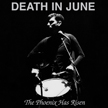 This collects rehearsal tapes and live performances from DIJ's early days, but is unfortunately more of an interesting historical curiosity rather than a compelling listen for anyone but the most die hard fans.
This collects rehearsal tapes and live performances from DIJ's early days, but is unfortunately more of an interesting historical curiosity rather than a compelling listen for anyone but the most die hard fans.
NER US
For me, the "demos and live tracks" compilation is difficult to deal with. They're usually interesting when relegated to bonus tracks on a remastered release or good box set fodder, but standing on their own they usually don’t succeed. A personal benchmark is Wire's Behind The Curtain. That single disc collection of demos and rarities showed the band during a transitional period, and those demos were often significantly different than the album versions. The Phoenix Has Risen, unfortunately, doesn’t achieve this lofty goal. The tracks are from The Guilty Have No Pride (i.e., the Laibach/Joy Division death rock days) era with Patrick Leagas and Tony Wakeford still as part of the group. The rehearsal tapes from 1981 demonstrate little different than rough takes of songs Death in June fans are all familiar with. With the exception of "We Drive East" (which has a different vocal style and is longer) and "Knives" (a.k.a. "Till the Living Flesh is Burned," which also features different vocals and lyrics), the songs are practically identical to the final released versions, just low quality mixes with indecipherable vocals.
The other half of the disc is a live show from 1983, which also covers much of the same ground as the rehearsals, and is no better than bootleg quality. Being a live performance, it is a bit more engaging, but once again, nothing any casual listener would be too enamored with.
The most interesting bits on here are unfortunately the shortest. The "Untitled" track from the rehearsal half of the album actually has Tony Wakeford getting downright FUNKY on a bassline for a bit under a minute, and the protracted introduction to the live performance, in which the lo fidelity setting of the recording gives the track a more militaristic industrial edge then could be expected.
One has to feel that Tesco/NER is starting to scrape the bottom of the barrel with these Death in June releases, and I suppose it was inevitable. The luxurious reissues they have issued over the past few years have been excellent, and it would seem that they are simply out of material. I just hope this does not set a precedent for future releases.
samples:
Read More
- Administrator
- Albums and Singles
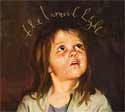 Current 93 hit the hight point of their career with the album at the center of this trilogy: 1996's All the Pretty Little Horses was and is the most perfectly rendered artistic statement that David Tibet and company have created. This will sound like blasphemy to the legions who jumped aboard the apocalyptic folk train with last year's Black Ships Ate the Sky, but trust me: I know what I'm talking about. This album is much, much better than Black Ships, and I unreservedly consider it to be one of the finest albums ever recorded.
Current 93 hit the hight point of their career with the album at the center of this trilogy: 1996's All the Pretty Little Horses was and is the most perfectly rendered artistic statement that David Tibet and company have created. This will sound like blasphemy to the legions who jumped aboard the apocalyptic folk train with last year's Black Ships Ate the Sky, but trust me: I know what I'm talking about. This album is much, much better than Black Ships, and I unreservedly consider it to be one of the finest albums ever recorded.
In 1992, Thunder Perfect Mind exploded everything for which Current 93 had been known. Up to this point, Tibet and company had always been reliable purveyors of grim, post-industrial soundscapes: noisy loops punctuated by sinister nursery rhymes, possessed chanting and the occasional, quasi-satirical dip into traditional English folk. However, TPM was an inestimably huge advance for Current 93, a stunning concept album that finally gelled in its sincere and heartfelt recreation of British psych-folk, with lyrics that were fully invested with Tibet's now familiar blend of cryptic poetry, existential musing and teleological obsession. The bar was set very high indeed, but remarkably, 1994's Of Ruine or Some Blazing Starre upped the ante once more, a gorgeous song suite that married Michael Cashmore's brilliant and minimal arrangements with Steven Stapleton's hallucinatory audio wizardry, with a set of texts that were the equal or better of TPM's finest moments.
David Tibet was creating his own world, with a sound to call his very own, laboring away in relative obscurity, but slowly building a loyal fanbase that would hang on his every word. This fanaticism would pay off with Current 93's next release, an album so well conceived and executed that it can take its place among the masterpieces which clearly inspired it: The Incredible String Band's The Hangman's Lovely Daughter, Comus' First Utterance and Shirley Collins' The Power of the True Love Knot. In 1996, Current 93 released the conceptual trilogy The Inmost Light, consisting of two EPs bookending the centerpiece album All The Pretty Little Horses, each part released separately over a span of months. This new triple-disc foldout digipack reissue on Durtro Jnana unites all three parts of the trilogy, giving them the remaster treatment (which, incidentally, is virtually undetectable), and including a full lyric booklet and gently modified artwork. If you've already got all three CDs in their original World Serpent incarnations, there is not much to recommend this set, other than the opportunity to experience anew the many treasures of a timelessly great album.
Where the Long Shadows Fall, though it is haunting and affecting, is in many ways the weak link of the trilogy. Upon repeated listenings, the loop which form the backdrop of the piece—Alessandro "The Last Castrato" Moreschi's fragile falsetto voice singing "Domine"—threatens to become a bit aggravating. Tibet repeats the EP's title with an elegiac sincerity, with occasional, jarring intrusions of droning sinfonie and sampled children's choirs, as well as haunting bits of wobbly old records of parlor music. This sidelong piece sets the scene, introducing the predominant themes of dream, death, childhood nostalgia and spiritual yearning which will find full expression on Horses. I got the chills as the piece faded out and realized that I could just barely make out the voice of John Balance intoning the improvised phrase: "Why can't we all just walk away?"
Forming a perfect continuity, Horses opens as Shadows ended: the droning of the sinfonie, the tinkling of delicate bells, the just-out-of-reach loop of Moreschi, and Balance's sad mantra, this time very audible. This segues directly into one of the most lovely and bone-chilling moments in the Current 93 oevre, Tibet's whispery vocal take on the titular Appalachain lullaby, transforming it from an innocent bit of childhood whimsy into an eerie meditation on the tragic disparity between our dreams and our reality. The next three songs contain the indispensable creative stamp of Michael Cashmore, who uses the figerpicking method he perfected on Starre to sublime effect, creating gorgeous melodies for Tibet's possessed vocals to wrap around. One of the things that undoubtedly stands out about this album, more than a decade later, is the amazing and inventive production: each plucked string vibrating perfectly, Tibet's voice bouncing between the stereo channels, forming a strange call-and-response with himself to haunting effect. For all of its eclecticism, Black Ships did not sound nearly as rich and evocative as this record. Far be it from me to speculate, but I can't help but feel that the superiority of Current 93's 1990s work is indicative of a certain manic-ness on Tibet's part, a darkly glittering intensity geared towards the perfection of his own self-expression that has faded over time, as success and relative comfort and stability have increased.
Whatever the case, it is hard to deny the power of this album, especially a track like "The Bloodbells Chime," a tribute to cat artist Louis Wain, containing a fragile, off-kilter piano melody joined by Cashmore's resonant acoustic guitar, climaxing in a moment that can only be described as utterly disarming. If you've heard the album before, you'll know what I'm talking about: "Thereohthere/The Inmost Light/The Happy Children rise from all their pools/Eyes still sealed/With mud and night/It's their Inmost Night." It is here that I begin to notice Stapleton's hand in the album's sound, as sample upon sample is layered and mutated to devastatingly psychedelic effect: children laughing, children crying, lysergically mutated vocal snippets creating a bubbling undercurrent of dread that will reach its apotheosis on the eight-minute "The Frolic," as a bloodcurdling sample comes swimming out of the murk with the staccato, accusatory scream of "Dead!" Tibet seems particularly fixated on the idea that his enlightenment, his desire to cleanse himself, to unmake his past and be born again, may have come too late, and that eternal salvation is forever out of his grasp. Thus, the return to images of childhood, to the signifiers of an innocence irrevocably lost, to vivid dreams and simple piety now sedimented by unhappy years of spiritual malaise.
The darkambient centerpiece of the album "Twilight Twilight Nihil Nihil" is a perfect stopgap before the next epic vocal track, "The Inmost Light Itself," containing one of Tibet's most dreadfully pessimistic lyrics: "Our hands tumble towards the skies/To block visions of The Inmost Light/And if I pointless arch/And spit whitenothings at the sky/Oh Bigboys - check it out: too fucking late." This against a lovely Cashmore arrangement of strummed guitar and Joolie Wood's clarinet, which constantly threaten to be drowned out by a frightening sample that sounds at first like children playing—with all of the characteristic yelling, laughing and chattering—but begins to seem as if it might be the sound of children in the midst of some terrifying holocaust, screaming and writhing in pain. It comes as a relief to hear Nick Cave's soulful, deep-voiced rendition of "All the Pretty Little Horses," followed by the album's coda: Cave reading Blaise Pascal's uncompromisingly dark and apocalyptic Pensees over a ghostly sampled choir.
With such a perfectly lovely and dread-filled conclusion, it is almost unfortunate to have to follow it with the concluding part of the trilogy, The Stars Are Marching Sadly Home. Although it is one of Current 93's most complex and fascinating works, indispensible for its inclusion of Shirley Collins, it ends up seeming like the superfluous gilding of the lilly when heard directly after Horses. Taken on its own terms, however, and as a conceptual third part of the trilogy, Stars is a terrific sidelong track. The creaking of a great wooden ship (a Black Ship?) sets the stage for Tibet's final prayer, an ominous sea shanty followed by a deliberately paced text so apocalyptic it achieves a Book of Revelations-style grandeur: "These days shall not come again/The stars are marching sadly home/The seahorse rears to oblivion." Tibet's words are artifically time-stretched, smeared, blurred, cracked and mutated, spinning out over a warbling sample of a vintage 78 so disintegrated and distorted that it seems positively alien. Andria Degens of Pantaleimon reads the final part of Tibet's text as the track becomes noisier and more discombobulated, climaxing with a squall of white noise and Shirley Collins' singularly melodic and matronly a cappella rendition of "All the Pretty Little Horses," by far the most emotionally penetrating take on the song across the trilogy.
Here it is, back in print. One of the best albums produced by one of the most fertile and creative minds of underground music. An album that, though it is so intense and emotionally draining, I never get tired of listening to. Right around this same time, the other two World Serpent-distributed projects most frequently mentioned alongside Current 93—Coil and Nurse With Wound—were also producing some of their most masterful and magickally-charged albums. Perhaps it was something in the water.
samples:
Read More
- Administrator
- Albums and Singles
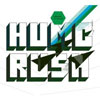 The second album from the duo of Thomas Strønen and Ståle Storløkken sees them continue the good work they started on their debut album. This cheery album is one of the better things that either of them have been involved in, a collection of music far from the chaos of Supersilent and yet more active and organic than most Norwegian electronic music.
The second album from the duo of Thomas Strønen and Ståle Storløkken sees them continue the good work they started on their debut album. This cheery album is one of the better things that either of them have been involved in, a collection of music far from the chaos of Supersilent and yet more active and organic than most Norwegian electronic music.
Rune Grammofon
While I enjoyed Strønen's recent solo outing, I found it too skeletal at times and the presence of Supersilent’s Storløkken on Hornswoggle adds the much needed flesh to the bare bones. Humcrush are fairly lighthearted in comparison to most of the Rune Grammofon artists (this is not a slur on those artists!), barring a couple of exceptions the pieces on Hornswoggle are fun, both artists sounding like they are having a great time making this music. The title track in particular is buoyant and exciting, the precise and powerful percussion floating in a sea of warm electronics.
The more serious parts of the album are filled with Strønen's signature percussion style. "Anamorphic Images" is centered on his jerky and resonant percussion while Storløkken steps back and only adds small details to the piece. The sparseness of this piece allows the unusual sounds of Strønen's beats to become more defined but without sounding solitary and lost like they sometimes do when he is performing on his own. However, the album sometimes feels a little too formulaic with Strønen only repeating rhythms and Storløkken playing around them. Luckily towards the end of the album they break up their playing, challenging themselves to approach the music in different ways. For example, "Knucker" is a fantastic play off between the pair with Strønen playing some very nice jazz fills and Storløkken getting hyperactive on his keyboards. The following track, "Roo," is in complete contrast to the rest of the album with the drumming taking the backseat and the electronics leading the piece.
As a duo they both compliment and bring out more from each other. I am surprised the album is so enjoyable because Supersilent are a group that I find difficult to listen to; I was expecting Storløkken's presence to be a problem for me. Thankfully this is not the case, Hornswoggle is extremely satisfying to listen to. The duo has done a superb job that is better than the work of theirs that I have encountered outside of Humcrush.
samples:
Read More
- Administrator
- Albums and Singles
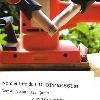 Quellet’s approach to musique concrete and sound manipulation pays careful homage to the likes of Pierre Schaeffer and Luc Ferrari but Quellet's own mark remains distinct. His work has its own voice despite the weight of history that he is composing against. It is nice to hear a fresh take on what has become a stodgy and uninspired field of music; he clearly has a lot of talent and a good ear for sound.
Quellet’s approach to musique concrete and sound manipulation pays careful homage to the likes of Pierre Schaeffer and Luc Ferrari but Quellet's own mark remains distinct. His work has its own voice despite the weight of history that he is composing against. It is nice to hear a fresh take on what has become a stodgy and uninspired field of music; he clearly has a lot of talent and a good ear for sound.
Sub Rosa
Quellet assembles his music from processed loops made by hitting all and everything around him, from a selection of drums to storage tanks and various household items. Most of the time he pumps up the levels on his loops to saturate the recordings, causing the beats to bleed into each other unrecognisably, only the rhythm being preserved. The resulting sounds are somewhat hackneyed; anyone who has ever listened to an oversaturated bootleg recording of any loud concert will be familiar with the sound of saturation. However, Quellet's arrangements easily overcome the staleness of the sounds. He repeats the rhythms with little to no variation within each piece; they become captivating by sheer act of determination on his part. On "Pour percussions et saturation, bruits de gorge," he records abstract vocalisations from his throat and overlays them on the grinding percussion track. The end result being an ominous and atmospheric piece that sounds like so much more than overdriven percussion and a voice.
Considering the abrasive nature of many of the sounds utilised by Quellet, Oppressum is remarkably listenable. There is a dark humour to his work, the repeating farmyard animal sounds on "Pour percussions, jouets sonores" sound both ridiculous and disturbing when the low, menacing throb in the background is factored in. As the piece progresses, Quellet's processing adds a vicious edge to the electronic farmyard toys, ending up as an apocalyptic version of Orwell's Animal Farm. The queasy laughter on "Pour voix et rire, percussions, orgue" also generates a feeling of absurd danger. At first it seems silly but the barrage of laughing takes on a hideous and manic tone as the piece goes on. This piece and the one involving the animal sounds above both highlight Quellet's skill at taking seemingly innocuous sounds and turning them on their head, which for me is one of the basic tenets of musique concrete.
Quellet demonstrates on Oppressum just how much can be done with a few microphones and some inspiration. The range of sounds from a few household items, voice and a church organ is boggling. All the more impressive is the deft way in which Quellet assembles these sounds into pieces of music. Considering this is the start of his recording career, it will be interesting to see what future releases will contain as his skills become more refined. Even if he never releases another sound, Oppressum is still a powerful and evocative release worthy of any of the greats of musique concrête.
samples:
- Pour percussions, jouets sonores
- Pour voix et rire, percussions, orgue
- Pour percussions, ponceuse, frappes sur clavier de téléphone
Read More
- Administrator
- Albums and Singles
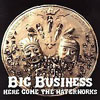 Wary of the dubious hype emanating from The Wire and other pretentious, quasi-academic outlets, I've pretty much steered clear of any "heavy" album one might learn of from such sources. Yet, something about the bass/drum duo known as Big Business drew me to seek out their latest album, and having done so I'm not the least bit disappointed.
Wary of the dubious hype emanating from The Wire and other pretentious, quasi-academic outlets, I've pretty much steered clear of any "heavy" album one might learn of from such sources. Yet, something about the bass/drum duo known as Big Business drew me to seek out their latest album, and having done so I'm not the least bit disappointed.
Although I'm fully aware of just how in vogue it is to be a scruffy, dateless fan of metal-referencing shoegaze acts these days, I've always curbed my own potential enthusiasm by actually listening to these artists' tunes and feeling bored or otherwise let down. If there's one genre save for noise that could do without any more artistic self-indulgence, it's metal. In a recent interview with the Melvins, I read of their inclusion of the Big Business duo of Jared Warren and Coady Willis with interest. I haven't been a Melvins fan of late, though I still dig their Atlantic releases from that period long before Mike Patton began rubber-stamping anything King Buzzo tossed in his direction. Still, that they'd recorded an entire album, last year's A Senile Animal, with two simultaneously performing drummers seemed novel to me, though I'm positive it's been done before. Still, rather than seek out that recording, I opted to pick up the new Big Business album instead.
While not exactly formulaic, Here Come The Waterworks constantly balances the accessible and the foreign. Complex drum rolls and brutal riffing open "Just As the Day Was Dawning" and kick off this impressive set of heavy hitters. Its chorus soars with an arena rock quality, all the while dazzling with adroit experimentation. Channeling Judas Priest and Motorhead, "Hands Up" jolts with anthemic ferocity, each kick drum exploding like illegal fireworks. What typically kills even the most musically thrilling metal acts is an indistinct, forgettable vocalist. Thankfully, Warren's voice stands out, unquestionably superior to today's screamo dandies and black metal goofballs. His style, clearly informed by both '80s wailers and '90s screamers, recalls Jaz Coleman with slightly less bile. Warren's lyrics are surprisingly thoughtful, as on the incredible "Shields," where he morbidly rants simultaneously on the inevitability and unpredictability of death.
The final tracks, "I'll Give You Something To Cry About" and "Another Beautiful Day In The Pacific Northwest," are each twice as long as any of the preceding killers. The latter of these veers into the perilous sludgy waters of stoner metal, though after so many sensational head bangers, it works remarkably well as an album closer. Anyone who has ever loved metal at any point in his or her life will find Here Come The Waterworks an absolute pleasure, guilty or otherwise.
samples:
Read More
- Administrator
- Albums and Singles
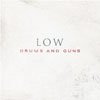 While Low are still known best for their basic three instrument arrangements, they have continuously been pushing their studio recordings to places beyond the signature sound and fan expectation. With Drums and Guns, they may have gone a bit too far. As much as I love Low and consider them one of the best rock music songwriting entities ever, no matter how much I listen to this album, I can't connect with it as a whole as much as I want to.
While Low are still known best for their basic three instrument arrangements, they have continuously been pushing their studio recordings to places beyond the signature sound and fan expectation. With Drums and Guns, they may have gone a bit too far. As much as I love Low and consider them one of the best rock music songwriting entities ever, no matter how much I listen to this album, I can't connect with it as a whole as much as I want to.
Hard core fans will recognize this sound: it's the sound of their B-side alternate takes. Going back through their catalog and listening to songs like the version of "Be There" from the "Over the Ocean" single, "I Remember" found on the B-side of "Immune," or "Shots and Ladders" from the "Canada" single, Low are known to have their more standard basic guitar strumming rock version and the more daring alternate take. On Drums and Guns, there is next to zero standard guitar chord strumming anywhere; the sound of Alan's guitar, when present, consists more of single-note playing and droning sustains while the rest of the instrumentation is dominated by sequencers, live percussion and drum machines, and samples. It's a move which eerily parallels Radiohead's Kid A, which means I'm sure it will gain them a ton of respect but it also has the potential to alienate a number of fans.
A number of the songs should be familiar to many, as they have been performed live for a few years and, in the case of "Murderer," have had recordings surface even before 2005's The Great Destroyer. Songs that were some of my favorite "new" live songs like "Dragonfly" and "Murderer" have become some of my fave songs on record. Although the music might make them sound distant: more robotic and less human, the lyrics still have the power to make clean cuts into the soul. The album is easily Low's most gruesome, as the title even suggests (throughout history soldiers and fighters march with drums and guns, after all) opening with the song "Pretty People" and its belting cry about how all the soldiers, little babies, poets, liars, and pretty people are "all going to die," picking up a couple songs later with "Breaker" as Alan sings how the "blood spills and spills" and "my hand just kills and kills." "Sandinista" is another example, sounding like a battle march with the multi-layered drumming and the lyrics to match "deep through the clouds, hear them marching up slowly fresh with the blood of your father so holy."
I can't help but think that some of the songs are fluff, however. "Your Poison" has potential with its opening vocal harmonies but at under 90 seconds it doesn't have the chance to develop. "Belarus" sounds pretty with its tinkling synthetic rhythms and Alan/Mimi harmony but it's relatively forgettable and while "Hatchet" may have a suggestive title, it's about burying "the hatchet like the Beatles and the Stones." It's a song I never was terribly fond of live and it's certainly not one of the best ones here.
"Murderer," while quite different from the original version on the Vinyl Films 10" single, still remains fairly powerful, but with a song that challenges god's evil and the cruelty of our own humanity, it's hard to be less than intense. I still think the earlier version was less alienating but with Low I'm sure there's a conscious reason behind this alienating sound on Drums and Guns. "Violent Past" closes the album with a typical rock progression, executed, however, through sampled organs and other weirdness, and while the lyrics continue with the fight theme of the rest of the album. Here we're finally given an attempt at an explanation, "maybe it's your violent past / maybe it's the violent path," Low's own interpretation of the old nature versus nurture argument but it's a compromise between the two. The message I'm getting from the album by this end is that underneath all the conflict, compromises are possible, I don't disagree with them but I'm simply not as captivated as I want to be.
samples:
Read More
- Scott Mckeating
- Albums and Singles
Improvising past their already raw solo paths, these two pieces move slowly through brief patterns that pulled out and opening up could provide the source of a lot more straightforward material. Instead this pair land in them with the attention span of buzzing flies, chewing on the short-lived music till they abscond leaving drugged tatters. These half-masticated drones, the windy sick sounds from Heath Moreland's boxes, and echoing percussion form a pool of spoiled noise, eviscerated into a loose gutter sound.
Despite a section of the metronomic reverbs, the whole thing is still an unwhittled and entertaining jumble of styles and instruments. Blasts of horn making this sometimes sound more like a snatch of a Graveyards session rather than a Moreland / Hall collaboration. Ending with the toll of a great sea bell, the ringing floating off into a rolling, sucking fog.
Read More
- Administrator
- Albums and Singles
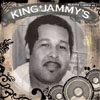 VP Records, the best known reggae label operating in the United States today, has gone above and beyond the call of duty with these four lovingly prepared double-disc collections of King Jammy's legendary 1980s dancehall productions. An extraordinary undertaking, this series branches off from and unequivocally surpasses last year's primer King At The Controls with an unhealthy level of meticulousness.
VP Records, the best known reggae label operating in the United States today, has gone above and beyond the call of duty with these four lovingly prepared double-disc collections of King Jammy's legendary 1980s dancehall productions. An extraordinary undertaking, this series branches off from and unequivocally surpasses last year's primer King At The Controls with an unhealthy level of meticulousness.
America's passing fancy for dancehall reggae has given the public only fleeting glimpses of its overall development, from the boombastic knockouts of Shabba Ranks or Chaka Demus and Pliers to more recent chart-climbers from Sean Paul and Beenie Man. Despite these and other noteworthy popular successes, the genre has thrived and evolved largely underneath the radar of the mainstream, playing independently by its own rules. While dancehall's origins trace back to the Jamaican deejays of the 1970s, one riddim in particular sparked the revolution, changing the face of the genre and reggae music forever: King Jammy's "Sleng Teng."
Although most famously versed by Wayne Smith on the classic "Under Mi Sleng Teng," Lloyd "King Jammy" James' earth-shattering prototypical digital riddim has been employed in studio recordings and live soundclashes by innumerable performers and remains an instantly recognizable dancehall classic with its simple, delightful, and often copied melody. Smith's essential take shares space here with official versions from Tenor Saw, Echo Minnott, Johnny Osbourne, Nicodemus, and John Wayne. While this is a decent and diverse grouping, the number of deejays who've had a go at the "Sleng Teng" riddim is immeasurable, making it downright impossible to put together an authoritative compilation.
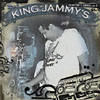 Still, King Jammy wasn't a mere one-hit wonder, as these 159 tracks demonstrate. This four volume series makes for a fantastic historical document of the genre that to this day defines Jamaican music, offering all sorts of clues as to where this emerging sound was headed. It's hard to say from my vantage point whether or not performers in this key period foresaw the longevity the sound would ultimately have, though Jammy's passionate and progressive productions act as a window into this breathtaking stage in 20th century music.
Still, King Jammy wasn't a mere one-hit wonder, as these 159 tracks demonstrate. This four volume series makes for a fantastic historical document of the genre that to this day defines Jamaican music, offering all sorts of clues as to where this emerging sound was headed. It's hard to say from my vantage point whether or not performers in this key period foresaw the longevity the sound would ultimately have, though Jammy's passionate and progressive productions act as a window into this breathtaking stage in 20th century music.
Mining such a sizeable pool of songs from dozens of artists poses a challenge for even the most active listener. Still, even with a splendid, ambitious collection such as this, highlights do emerge. Of particular note is the pairing of Echo Minnott's "What The Hell" and "Tell You What Police Can Do," the female response from Lady Junie, both recorded over the same riddim. Minnott's memorable take practically justifies his abusive relationship, taunting the lover in his story while apologizing for their domestic violence, while Junie's sharp tongue counters with feminist fury, detailing the type of beating her own lover could expect from the authorities for his actions. Peter Metro uses his forum to decry racist profiling and nationalist sentiment on the unforgettable "Police Inna England." On "Let Jah Arise," King Kong infuses some strict Rastafarian morality into the genre, warning sinners who deviate from the righteous path, a torch picked up by more current artists like Capleton. Those who loved last year's White Mice reissues on Basic Replay will enjoy the youthful voice of Risto Benji on the two ruff cuts he graces, "Don't Pirate It"and "Gimme Di Money." Somewhat disappointing on this front is the inexplicable exclusion of the aforementioned Beenie Man, another young emcee that came up through the Jammy's ranks and even recorded his now out-of-print debut album with the imprint.
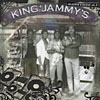 Several of these tracks, most common on the final volume, foreshadow the prevalence of sexual lyrics in dancehall, a significant deviation from the tamer romance of lovers' rock and Jah praise of roots reggae. The genre's early embracing of (hetero-)sexuality sets it miles ahead of the majority of "shocking" lyrics from today's opportunistic Western pop stars and showboating rappers. Compare the allegedly racy singles from major label artists deemed worthy of MTV airplay to some of the raw verses spat and you'll have a hard time disagreeing with my assessment. Take, for one, Jammy's infamous "Punnany" riddim, made even more wicked thanks to the explicit patois of Admiral Bailey's version. To this day, that word serves as an accessible point of reference for dancehall music and, to countless outsiders, Jamaican culture. Shabba Ranks invokes the term repeatedly on the simplistic hook of the raunchy yet catchy "Love Punnany Bad" and to a lesser extent on the even more deliciously vulgar "Needle Eye Pum Pum," a track in praise of gloriously tight pussy.
Several of these tracks, most common on the final volume, foreshadow the prevalence of sexual lyrics in dancehall, a significant deviation from the tamer romance of lovers' rock and Jah praise of roots reggae. The genre's early embracing of (hetero-)sexuality sets it miles ahead of the majority of "shocking" lyrics from today's opportunistic Western pop stars and showboating rappers. Compare the allegedly racy singles from major label artists deemed worthy of MTV airplay to some of the raw verses spat and you'll have a hard time disagreeing with my assessment. Take, for one, Jammy's infamous "Punnany" riddim, made even more wicked thanks to the explicit patois of Admiral Bailey's version. To this day, that word serves as an accessible point of reference for dancehall music and, to countless outsiders, Jamaican culture. Shabba Ranks invokes the term repeatedly on the simplistic hook of the raunchy yet catchy "Love Punnany Bad" and to a lesser extent on the even more deliciously vulgar "Needle Eye Pum Pum," a track in praise of gloriously tight pussy.
Another common thread on display here is dancehall’s informal approach to covering other people’s songs. King Everald's "Dancehall Business" loosely interprets Irving Berlin’s perennial showtune "There's No Business Like Show Business" while Leroy Gibbons' "Magic Moment" stays largely true to The Drifters' original. Coincidentally, Cocoa Tea's "Medley 5" liberally samples from another Drifters classic "Under The Boardwalk." This technique of taking recognizable songs and converting them into new ragga platters continues today.
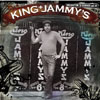 King Jammy's impact on reggae is akin to such hailed producers as Phil Spector or Martin Hannett, if not moreso. A lesser label (several come to mind) would have been content, taking into account licensing considerations, to release any one of these eight discs and audaciously call it "definitive." VP Records' efforts honor the man and his legacy, and I sincerely hope that the label's high profile gives this impressive undertaking the type of attention that could never have been achieved with the independently released Revenge of King Jammy's Super Power All Stars discs. At present, all four excellent volumes are available as individual double-disc releases, which may frustrate cash-strapped consumers but though undoubtedly thrill completists.
King Jammy's impact on reggae is akin to such hailed producers as Phil Spector or Martin Hannett, if not moreso. A lesser label (several come to mind) would have been content, taking into account licensing considerations, to release any one of these eight discs and audaciously call it "definitive." VP Records' efforts honor the man and his legacy, and I sincerely hope that the label's high profile gives this impressive undertaking the type of attention that could never have been achieved with the independently released Revenge of King Jammy's Super Power All Stars discs. At present, all four excellent volumes are available as individual double-disc releases, which may frustrate cash-strapped consumers but though undoubtedly thrill completists.
samples:
- Wayne Smith - Under Mi Sleng Teng
- Peter Metro - Police Inna England
- King Kong - Let Jah Arise
- Echo Minnott - What The Hell
- Leroy Gibbons - Magic Moment
- Shabba Ranks - Needle Eye Pum Pum
- Admiral Bailey - Punnany
- Risto Benji - Gimme Di Money
Read More
- Administrator
- Albums and Singles
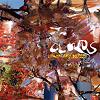 While some of this album is fun, there is not enough fun to go around. Many of the songs are boring, trying to counter a lack of imagination with volume. Listening to this album does get my foot tapping but so do most bar room blues and covers bands. There is nothing to engage with; I am not yearning for anything particularly intellectual but something more than rehashing the same blues scales and vocal histrionics would be nice.
While some of this album is fun, there is not enough fun to go around. Many of the songs are boring, trying to counter a lack of imagination with volume. Listening to this album does get my foot tapping but so do most bar room blues and covers bands. There is nothing to engage with; I am not yearning for anything particularly intellectual but something more than rehashing the same blues scales and vocal histrionics would be nice.
Hydra Head
Two things about this album irritate me and both of them center on Andy McGrath. The first being his overworked guitar playing which, although showing off that he has been practicing his scales, is far from exciting. Luckily it is tempered somewhat by the songs' punkish beats and some nods towards classic Black Flag riffing such as on "Live for it Now." The second thing that irritates me is the vocals as McGrath sounds too cartoonish too much of the time, the most criminal instance being his screaming on "Magic Hater." It's a shame because his vocals sound great on certain parts of certain songs but unfortunately these moments are too rare to redeem him in my ears. One song that bucks all the above trends is "Mountain Jim," which has some great guitar playing on it, coupled with a strong rhythm section. It is not going to set the world ablaze with its originality but it certainly holds its head high above the other songs on Legendary Demo.
Bizarrely, half the disc is taken up with "Quartulli Dub," a very long instrumental jam that quickly becomes an exercise in tedium. As this is such a substantial part of the album, I am surprised that it is so unengaging. The first three minutes are enthralling purely because the music is so different from the rest of the album, instead of the bluesy rock and punk of the preceding songs "Quartulli Dub" is, as the name suggests, far more indebted to reggae and dub. The novelty soon wears off and the self-indulgence becomes too much for me, especially the soulless saxophone solos. If "Quartulli Dub" was a quarter of the length and dropped the saxophone it would be a far better piece of music but at 20 minutes, Clouds are taking the piss.
There are too many pedestrian generic rock songs and far too many moments of excitement to make this album anything less than a chore to listen to. Bearing in mind that some of the best bits are nestled within songs, it is not an option to just program in the tracks I like or rip them to mp3. When it is too much of an effort to listen to a full song to hear the couple of nice guitar licks it contains, it is a sign that perhaps Legendary Demo is not quite as legendary as it makes out.
samples:
Read More
- Administrator
- Albums and Singles
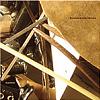 The three piece improv group return with their second album which is more of the same structureless music that brings to mind John Cage's prepared piano works if they were disarranged for a free jazz ensemble. This album is interesting (in a beard stroking kind of way) but the group does not challenge the listener enough for all its pretenses. The players hold themselves back more often than is necessary; the power of their music is reduced greatly as a result.
The three piece improv group return with their second album which is more of the same structureless music that brings to mind John Cage's prepared piano works if they were disarranged for a free jazz ensemble. This album is interesting (in a beard stroking kind of way) but the group does not challenge the listener enough for all its pretenses. The players hold themselves back more often than is necessary; the power of their music is reduced greatly as a result.
Synaesthesia
The three performers spend as much time not playing as they do making noise. Percussionist Sean Baxter is the most active of the three but gets stuck playing what sounds like the same haphazard beat but on different objects each time. The group utilize two prepared instruments, a piano and a guitar played by Anthony Pateras and David Brown respectively. Apart from the obvious piano and guitar sounds, these two instruments fuse together at times; it is hard to tell what strange sound is coming from which instrument. Both Pateras and Brown play with a lot of restraint and while it is refreshing to hear a group holding back instead of clamoring for the limelight, I wish they would let rip just once or twice to shake things up a bit.
Gauticle requires a lot of patience from the listener as it is not exactly easy listening. The pieces are simply named after the locations where they were recorded, three from Vienna and two from London. The first piece from Vienna sets the mood of the album immediately; it is brooding, atmospheric and sparse. However, it doesn't go far and 11 minutes is a long time to be doing so little. "Vienna Three" is in a similar vein to the first one but with a bit more drama. The percussion is better and the small squalls of guitar feedback provide some much needed texture to the music.
As the disc goes on, the abstract nature of the playing takes its toll. I would have liked something concrete to hold on to but five tracks of atonal noodling is a bit much for me. It is good but something I prefer to take in smaller doses. Sitting down to listen to the album all in one go was a draining experience, taking it track by track allowed me to appreciate it more. I like Gauticle but not too much of it too often. It can be a slog to get through despite most of the pieces being quite good.
samples:
Read More
- Administrator
- Albums and Singles
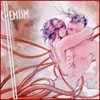 Chemism is the "mutual attraction, interpenetration, and neutralisation of independent individuals which unite to form a whole". Strangely though, the collaborations here tend not to come across as collegial, not through any enforcement or dictates by the duo, but through the strength of the chemistry between this collective's core. Black Sun Productions may have gathered a cast of like-minded souls to shape this album, but this still feels like the work is led by the distinctly European vision of the single mind of Massimo and Pierce. In this way, it seems like an ideal description of their working process.
Chemism is the "mutual attraction, interpenetration, and neutralisation of independent individuals which unite to form a whole". Strangely though, the collaborations here tend not to come across as collegial, not through any enforcement or dictates by the duo, but through the strength of the chemistry between this collective's core. Black Sun Productions may have gathered a cast of like-minded souls to shape this album, but this still feels like the work is led by the distinctly European vision of the single mind of Massimo and Pierce. In this way, it seems like an ideal description of their working process.
Moving away from the sombre marathon of their grand The Impossibility of Silence double release, this is an emotionally stricter, more rhythm-led release. The exacting looped beats that most of the tracks here are built up around are aimed more at creating atmospheres than anything to do with tempo or the dancefloor. Through the textures and unsupportive structures of the percussion sounds these appear as integral layers rather than a mere programmed skeletons. Removed from their clanking heavier roots they can either sunk to complex scratchy sputterings ("The Repossession of Innocence Lost"), the bars of hell's gate rattling. This isn't a grand techno epic filling every inch with sound, there is an immense amount of space left on Chemism. These gaps, the cold melodies and the air of ridged melancholy give the album a chilly air that refuses to leave. Even their abstraction feels like its being viewed by carnal eyes through black curtains, the clatter of tin rain on plastic roofs feeling voyeuristic. There’s room for the slightly less serious too, Black Sun Productions never confusing dark music with miserabilism, the simple descending notes taking a brief segway into an huffing orchestral oompah groove.
Their world on Chemism seems to be slowly becoming ruled by a more obviously electronic heart, but a heart nonetheless. The occasional richness of Massimo's vocals only serves to sink the album further into spiritual impiety. His entreaties sink like inverted plainsong, coaxing ravens frm gibbets and young men to their doom. Even the beatific coated vocals soar, as on the closing "Veneration X," they still sound like falling angels clutching fatal wounds. Their previously released paean to William Burroughs, "Uncle Billy," sounds even better in this company than on 7" vinyl, the violin making its mark in the mix. The Coil-like vibraphone melody of "Dies Juvenalis" is the only easily observable link back to their musical roots, the rest of the LP sounding free of heavy or direct influence.
samples:
Read More

